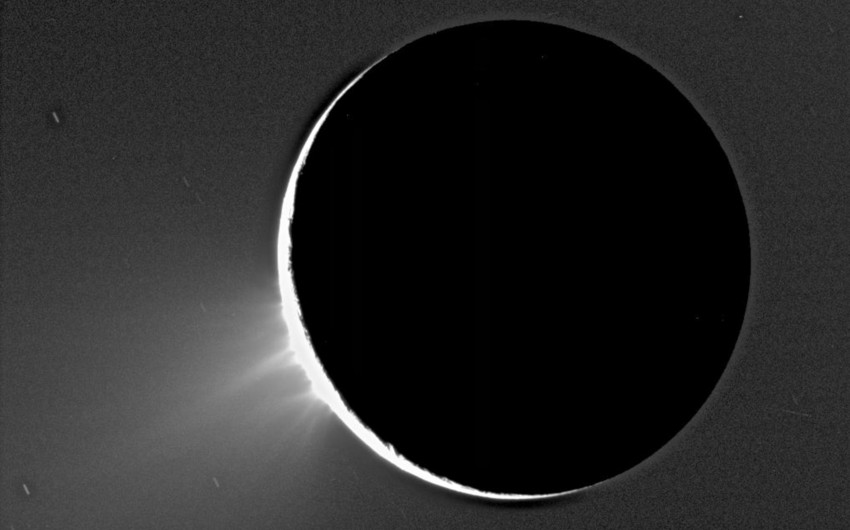Cornell University astrobiologists have devised a novel way to determine ocean temperatures of distant worlds based on the thickness of their ice shells, effectively conducting oceanography from space, Report informs referring to ScienceDaily.
Available data showing ice thickness variation already allows a prediction for the upper ocean of Enceladus, a moon of Saturn, and a NASA mission's planned orbital survey of Europa's ice shell should do the same for the much larger Jovian moon, enhancing the mission's findings about whether it could support life.
The researchers propose that a process called "ice pumping," which they've observed below Antarctic ice shelves, likely shapes the undersides of Europa's and Enceladus' ice shells, but should also operate at Ganymede and Titan, large moons of Jupiter and Saturn, respectively. They show that temperature ranges where the ice and ocean interact -- important regions where ingredients for life may be exchanged -- can be calculated based on an ice shell's slope and changes in water's freezing point at different pressures and salinities.
NASA's Cassini probe generated data sufficient to predict a temperature range for Enceladus' ocean, based on the slope of its ice shell from poles to equator: minus 1.095 degrees to minus 1.272 degrees Celsius. Knowing temperatures informs understanding of how heat flows through oceans and how they circulate, affecting habitability.
The researchers expect ice pumping to be weak at Enceladus, a small moon (the width of Arizona) with dramatic topography, while at larger Europa -- nearly the size of Earth's moon -- they predict it acts quickly to smooth and flatten the ice shell's base.


 https://static.report.az/photo/43dcf547-956d-3797-8de7-5597fc2e8801.jpg
https://static.report.az/photo/43dcf547-956d-3797-8de7-5597fc2e8801.jpg

